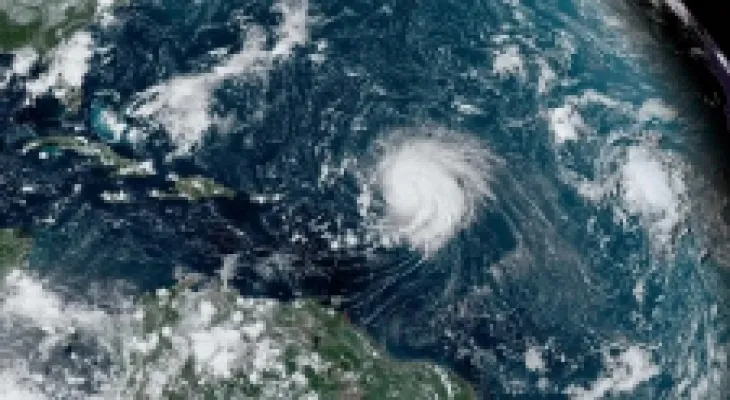Search here
Newspaper
Search here

Arab Canada News
News

Published: March 19, 2024
New data has shown that the world's oceans have experienced a full year of unprecedented heat so far, with a new temperature record set every day.
Global ocean surface temperatures began breaking daily records in mid-March of last year, according to data from the National Oceanic and Atmospheric Administration (NOAA) and the Climate Analysis Tool at the University of Maine, raising concerns about marine life and severe weather across the planet.
Joel Hirschi, associate head of marine systems modeling at the UK National Centre for Ocean Science, said: "The extent to which the previous sea surface temperature records were broken in 2023, and now again in 2024, is remarkable."
Gregory C. Johnson, an oceanographer at NOAA, said the global average ocean temperature in 2023 was 0.25 degrees Celsius warmer than the previous year. He told CNN that this increase "equals about two decades of warming in one year." "So it is very large, very significant, and somewhat astonishing."
Scientists said ocean heat is increasing due to human-caused global warming, which has been boosted by the El Niño phenomenon, a natural climate pattern characterized by above-average ocean temperatures.
The main consequences are for marine life and global weather, as global ocean warmth can add more energy to hurricanes and other severe weather events, including scorching heat waves and heavy rainfall.
High ocean temperatures have already proven disastrous for coral reefs. The Great Barrier Reef in Australia is experiencing its seventh mass bleaching event, authorities announced in March, after conducting aerial surveys.
Bleaching occurs when heat-stressed corals expel the algae living in their tissues that provide their food source. If ocean temperatures stay too high for too long, the coral may starve and die.
Data from NOAA's Coral Reef Watch tool shows the problem extends far beyond Australia, and the world may face a fourth global mass coral bleaching event in the coming months.
Karina von Schuckmann, an oceanographer at Mercator Ocean International in France, said: "Ocean warmth paves the way for more intense hurricanes; the warmer the ocean, the more energy is available to fuel storms."
Temperatures have reached unprecedented levels in the North Atlantic Ocean, a key area for hurricane formation, surprising some scientists who are still trying to understand the exact causes.
Brian McNoldy, lead researcher at the Rosenstiel School at the University of Miami, told CNN: "Sometimes, records (in the North Atlantic) have been broken by statistically impossible margins."
Hirschi said that if ocean temperatures remain extremely high into the second half of 2024 and a La Niña event develops — the counterpart to El Niño that tends to amplify the Atlantic hurricane season — "this would increase the risk of a very active hurricane season."
About 90% of the excess heat in the world generated by burning fossil fuels to warm the planet is stored in the oceans. Schuckmann told CNN: "Measuring ocean temperature rise allows us to track the state and evolution of planetary warming; the ocean is the guardian of global warming."
El Niño is weakening and is expected to dissipate in the coming months, which may lead to ocean temperatures stabilizing from record levels, especially if the cooling effects of La Niña follow.
Schuckmann said: "In the past, surface temperature values have dropped after El Niño passed." But she added that it is currently impossible to predict when ocean temperatures will fall below record levels.
While natural climate fluctuations will cause ocean temperatures to vary, Johnson of NOAA said that in the long term, we should expect them "to continue breaking records as long as greenhouse gas concentrations in the atmosphere keep rising."
Comments